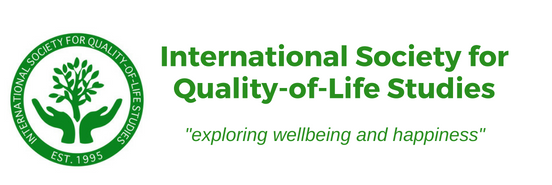Recruitment of Four Researchers in Psychology
Opening of the recruitment process of four researchers in the field of Psychology, to collaborate in an "Experimental Study on the Impact of Singing Groups on the Well-being, Cognitive Function and Health of Older Adults."
Intervention research project with the Scientific Supervision of the Universidade Autónoma de Lisboa (Doctor Iolanda Costa Galinha) and ISCTE-IUL (Doctor Maria Luísa Lima), in partnership with the Teatro Nacional de São Carlos and the Santa Casa da Misericórdia de Almada and the Santa Casa da Misericórdia de Lisboa, funded by the “Orçamento Participativo Portugal” (2017) and promoted and coordinated by the DGArtes.
Objective: Collaboration in the writing of one scientific paper and one scientific poster.
Work location: at distance (by means of two reports per month, supervised by the scientific coordination of the project).
Remuneration: € 4500 gross payment in four branches at the conclusion of the: (1) introduction (including state of the art) and method; (2) results; and (3) discussion sections of the paper; and (4) the scientific poster.
Duration: 12 months, starting 1st May 2019.
Recruitment Requirements:
(1) Master or PhD in Psychology or Social Sciences;
(2) good command (written and spoken) of the English language;
(3) advanced statistical knowledge, with experience in both SPSS and AMOS.
Preference for researchers with scientific experience:
(1) in topics related to aging;
(2) in experimental research methods.
Response to the announcement with the following documents, in one PDF file:
1. Synopsis of the Curriculum Vitae, highlighting:
(a) Academic qualifications, year and classifications (including certificates);
(b) List of the main scientific publications (up to 6 publications);
(c) Orcid Identifier;
(e) Research Fellowships;
(f) Collaborations in funded research projects.
2. Signed Complete Curriculum Vitae;
3. Letter in which the candidate, after analyzing the attached project (Annex 1) and based on the data collected in the study, proposes and frames in the literature a research question that will develop in an article (maximum 500 words, in English).
The selection process involves a first phase of documental analysis (90%) and a second phase of interview (10%).
Responses to the announcement until March 15
to: igalinha@autonoma.pt and luisa.lima@iscte-iul.pt
Annex 1: Abstract of the Project “Experimental Study of the Effects of Group Singing in the Well-Being, Cognitive Function, and Health of Older Adults.”
Background: Singing is a multimodal activity that requires physical, cognitive and psychosocial performance. It has the potential to improve the health of older adults in various dimensions and to promote active aging and independence. Previous studies suggest that singing is beneficial to the well-being of older adults, but the specific factors responsible for these benefits remain uncertain, as most of the studies do not analyze causal inferences. The present study responds to the need for further experimental studies with control group and follow-up measurement for the analysis of the causal effects of group singing on well-being, cognitive function and health in old age, with a higher validity of the research results.
Design: In this study, we implement and examine the effects of a singing group for older adults using an experimental and a control group. Observations will take place in both groups before and after the intervention and at a follow-up, 4 months after the intervention. Participants will be 130 retired elderly (> 60 years) from the several facilities of the Santa Casa da Misericórdia de Lisboa and the Santa Casa da Misericordia de Almada, randomly assigned to an experimental group (n = 65) and a control group (n = 65). The intervention program consists of a singing group activity with five components: (1) physical and relaxation exercises for singing, (vocal warming, diaphragmatic breading and body posture); (3) rehearsal of repertoire (memory and interpretation of music and lyrics); (4) socialization, 20 minutes brake for socializing, group dynamics exercises and activities with common goals; (5) creation and presentation of a musical show to the public. The program will be developed in 34 sessions of two hours each, two times a week for four months, including the preparation and the presentation of a musical show. Measures. The study proposes to measure the following variables:(1) Psychoemotional indicators: Subjective Well-Being (Global Happiness, Satisfaction with Life, and Positive and Negative Emotions); Quality of Life (Satisfaction with Physical Health, Psychological Health, Social Relations, Sensory Function, Autonomy, Social Participation, Mobility, Personal Care, Usual Activities, Pain); Self-esteem; Depression, Anxiety and Stress;(2) Psychosocial indicators: Social Well-Being; loneliness; social identification and identification with the singing group;(3) Cognitive Functioning: Executive Function, Attention, Verbal Memory and Verbal Fluency;(4) General Health: Biomarkers of blood glucose, cholesterol, sedimentation rate, C-reactive protein, blood pressure, and body weight, respiratory function, aerobic and balance functions, health satisfaction, health services attendance, and medication intake;(5) Sociodemographic variables: age, sex, marital status, educational status, living arrangement, age of retirement, occupation before retirement, and socioeconomic status;(6) Semi-structured interviews about the motivations, expectations and perceived benefits of participating in the program, positive and negative aspects of the program and suggestions for future programs. Validated short-versions of the measures will be preferred, collected before and after the intervention and at a follow-up, 4 months after the intervention.Procedures: The project strictly follows the international criteria of ethical requirements for studies with human participants and for the protection of personal and sensitive data in European directives and it has been approved by an independent Ethics Committee.Discussion: Positive effects of the intervention program are expected on the well-being, cognitive function and general health of the participants. In doing so, our study will empirically validate a cost-effective intervention program in group singing for older adults.
